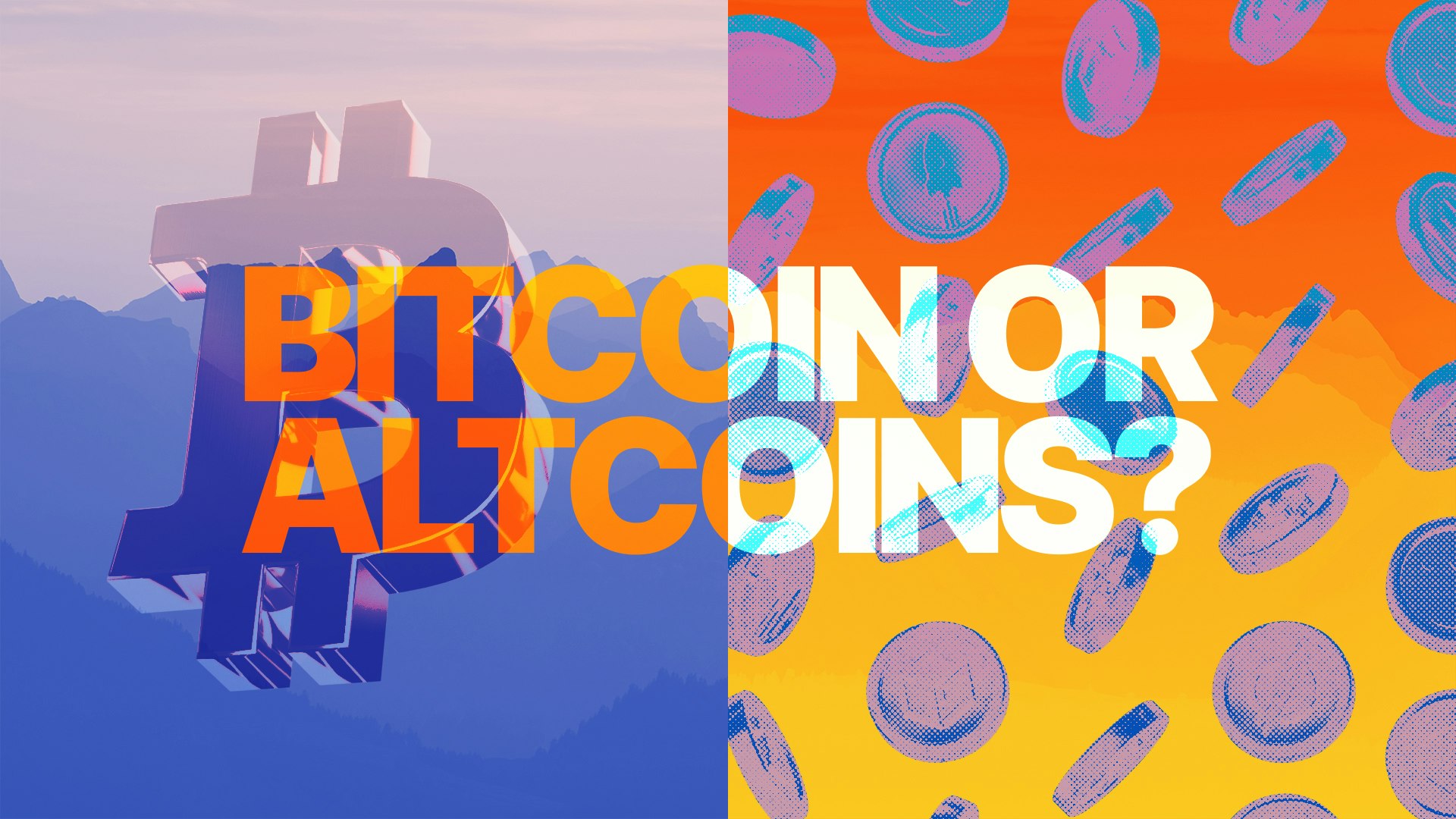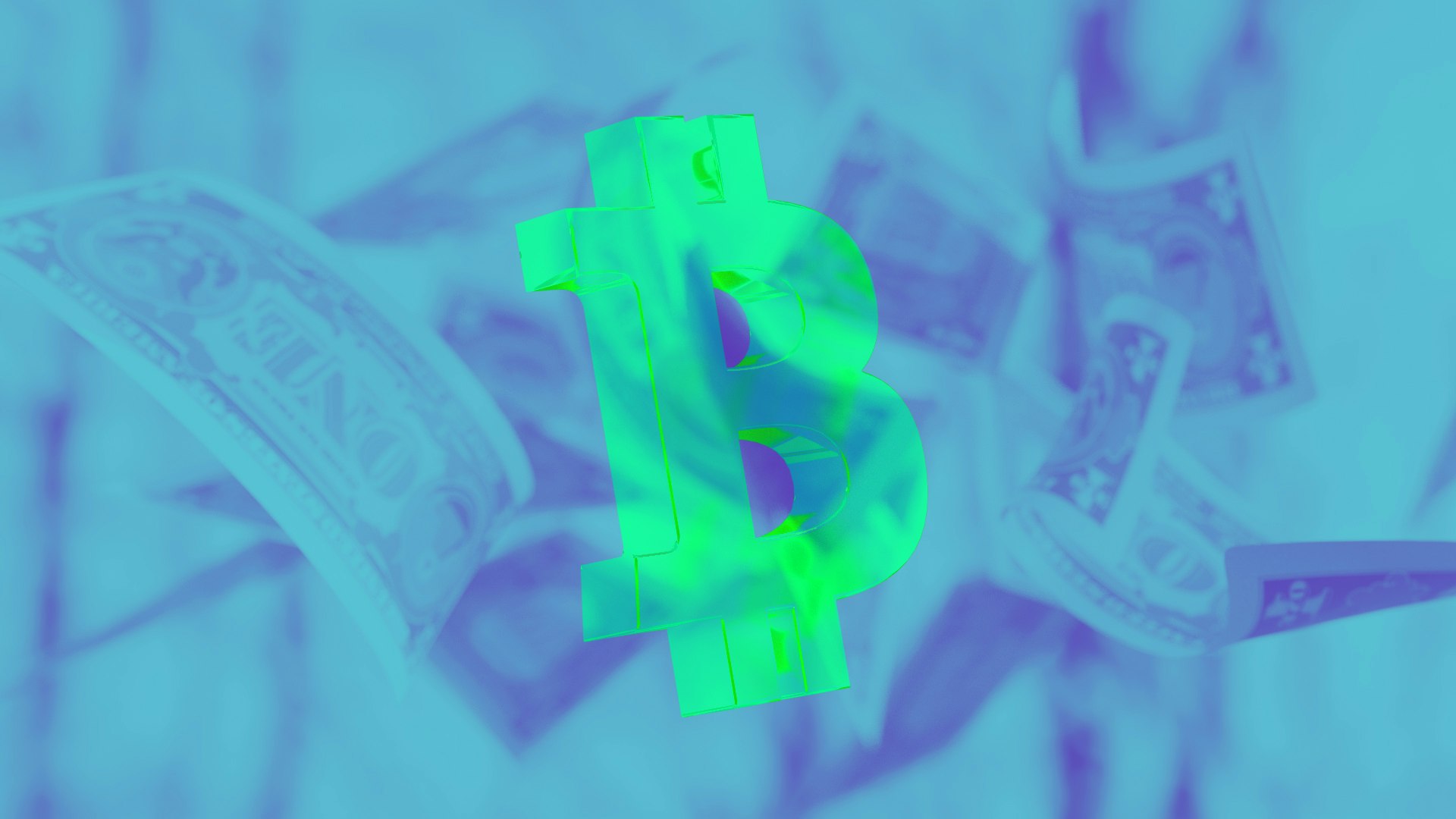Claim your free €20 Bitcoin bonus now! Just verify your ID. Weekly payouts every Friday! Don't invest unless you're prepared to lose all the money you invest.
Buy Bitcoin vs. Altcoins: Why Start with Bitcoin?
There are now many cryptocurrencies on the market. But should you still start with Bitcoin?
In this article...
- With so many cryptos on the market, where should you start?
- Bitcoin, as the ultimate OG, may be a good starting point
- Here are some thoughts about Bitcoin as your starter crypto

There are many cryptocurrencies, all competing for our attention. Obviously, the first and original, , is still the most popular. This is despite other cryptos becoming well-known and having interesting use cases.
Among the thousands of options vying for attention, like Ethereum, XRP, Cardano, Solana, and others, Bitcoin stands as the unchallenged pioneer.
But why begin with Bitcoin?
Bitcoin the OG: The foundational role
Bitcoin, introduced in 2009 by the enigmatic , was not just the first cryptocurrency. It is the blueprint on which the entire cryptocurrency ecosystem models itself on.
Bitcoin's creation introduced blockchain technology, a decentralised ledger that records transactions securely and transparently without the need for intermediaries like banks. This innovation sparked the proliferation of alternative cryptocurrencies, often dubbed “altcoins,” each attempting to carve out a niche. Yet, Bitcoin remains the gold standard. It has the largest market capitalisation and the widest recognition globally.
Least volatile in a volatile market
The invention of crypto was a stroke of genius. But it ain’t perfect. Cryptocurrencies are notorious for their price volatility. While altcoins like Dogecoin or Solana may experience meteoric rises (and equally dramatic falls), Bitcoin does at least have longevity. It has stayed alive for over 15 years, weathering market cycles.
This is not to say Bitcoin is immune to fluctuations. But its larger market presence and established infrastructure provide a buffer against the wild swings often seen in less mature projects.
Bitcoin’s track record might offer a safer harbour to learn the ropes. While grappling with wallet security, transaction fees, and market trends, Bitcoin might be a good bet, without the risks tied to experimental or new altcoins.
Why some investors buy Bitcoin first: Network effects and adoption
One of Bitcoin’s most compelling strengths lies in its network effects. In economics, a network effect occurs when a product’s value increases as more people use it.
Bitcoin works with this principle, as it is accepted by more and more merchants, integrated into payment systems, and supported by hardware and software solutions. From buying a coffee to investing through institutional mainstream platforms, is growing.
This means it has practical advantages for beginners. Setting up a Bitcoin wallet, purchasing fractional amounts (known as satoshis), and finding reliable exchanges are established processes. This is thanks to the coin’s maturity compared to other cryptos.

A store of value: Bitcoin as “digital gold”
Beyond its use as money, Bitcoin is seen by some as a store of value, often likened to the digital version of gold. Its supply is capped at 21 million coins, a scarcity hardcoded into its protocol.
This is the opposite of fiat currencies. More money can be printed at any time, devaluing the existing pool of fiat already in circulation.
Altcoins, while innovative, often lack this defining trait. Many have uncapped supplies or complex issuance models that dilute their long-term value proposition.
Bitcoin is considered by some to have a savings mechanism that resists depreciation, unlike the cash sitting in a bank account earning negligible interest.
While excels in smart contracts and decentralised applications, and focuses on cross-border payments, Bitcoin’s simplicity as a reliable asset makes it a good first step into crypto investing.
The learning curve: Using Bitcoin as a gateway into cryptocurrency investing
Bitcoin can act as a gateway to understanding the broader cryptocurrency ecosystem. Grasping its blockchain fundamentals equips you to explore .
Starting with Bitcoin is about building a foundation. As you master its mechanics, like the ethos of decentralisation, you may find the transition to altcoins smoother.

Adoption as a reserve
An interesting step in the evolution of cryptocurrencies is that the has added Bitcoin to the coffers owned by the American taxpayers. It is called a “Strategic Bitcoin Reserve.” This Bitcoin has been seized from criminal activity.
The U.S. government is also establishing a reserve of cryptocurrencies in a “U.S. Digital Asset Stockpile” which would include seized .
Proponents suggest this reserve would position the U.S. as a leader in financial innovation and enhance national economic security. There's also the idea that it provides a level of legitimacy to the crypto market.
As a “legitimate” parallel currency, Bitcoin could become more valuable from this point onwards. However because no new Bitcoin was purchased for this reserve, this meant that some investors lost confidence in Bitcoin. Bitcoin prices fell after the announcement.
Conclusion: Buy Bitcoin as a starting point
The cryptocurrency landscape offers a buffet of altcoins. But Bitcoin's foundational role, and potential as a digital store of value make it an ideal starting point for anyone wanting to enter the world of crypto.

Suggested Articles
ASI Merger: What is Happening With Fetch.ai (FET)?
Three AI companies have merged, but what does it mean for you?What is an Altcoin? What are Altcoins for?
The term altcoin is derived from two words: “alternative” and “coin.” It refers to any cryptocurrency other than Bitcoin.Bitcoin Mining Scam: What to Look Out For
The Bitcoin Mining Scam is a new online threat coming at us. Our compliance expert explains another sophisticated scam to look out for.Browse by topic

CoinJar Europe Limited (CRO 720832) is registered and supervised by the Central Bank of Ireland (Registration number C496731) for Anti-Money Laundering and Countering the Financing of Terrorism purposes only.
Apple Pay and Apple Watch are trademarks of Apple Inc. Google Pay is a trademark of Google LLC.
This site is protected by reCAPTCHA and the and apply.